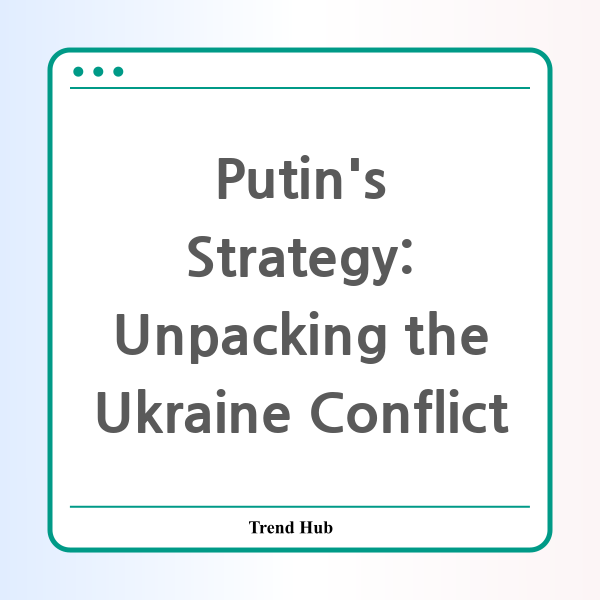* This website participates in the Amazon Affiliate Program and earns from qualifying purchases.

If you’ve been following global politics closely, you might be wondering what implications the shift in U.S. leadership will have on the ongoing conflict between Russia and Ukraine. With the election of Donald Trump as President of the United States, crucial dialogue about the future of Ukraine is on the horizon. What could this mean for the players involved, particularly for Russian President Vladimir Putin? Let's delve into the recent developments and analyze their potential impact.
Recent statements from Russian officials indicate that Moscow is preparing for discussions with Trump, emphasizing the need for a dialogue free of external interference. Dmitry Peskov, spokesman for Putin, mentioned that no special conditions are necessary, signaling Russia's readiness to engage in talks regarding Ukraine's future. This stance reflects a broader strategy aimed at positioning Russia within a favorable diplomatic framework.
More revealing are the comments from Nikolai Patrushev, Putin's aide, who articulated that any settlement concerning Ukraine should be primarily negotiated between the U.S. and Russia, sidelining both Ukraine and the European Union. This raises significant questions about the legitimacy of Ukraine's territorial integrity and self-determination, which are being dismissed in favor of Russian security interests.
As global attention turns towards a potential Putin-Trump rendezvous, a new survey by the European Council on Foreign Relations showcases varying international perspectives on this political shift. Countries like India, China, Saudi Arabia, and Brazil view Trump's presidency positively and perceive Russia as a necessary ally, despite the ongoing conflict in Ukraine.
On the ground, the war continues unabated, with Ukraine making significant gains. This includes the recent capture of North Korean soldiers by Ukrainian forces in the Kursk region. These developments highlight the complex dynamics of military alliances and showcase how Russia may be leveraging international relations to bolster its military presence.
Ukrainian President Volodymyr Zelenskyy has been vocal about these captures, emphasizing the plight of North Korean soldiers who are evidently being sent to the front lines, often under false pretenses. Such actions not only underline Russia's desperation in maintaining its fighting strength but also expose vulnerabilities within its military strategy.
As the conflict escalates, Russia's narrative around security continues to dominate. Officials argue that threats on their western flank must be neutralized, framing their actions in Ukraine as necessary for national security. This rhetoric aligns closely with Trump's past statements suggesting a more isolationist approach towards foreign conflicts and interventions.
Furthermore, the ongoing attacks on Russian infrastructure by Ukraine demonstrate a strategic effort to weaken Russia's military capabilities, with Ukrainian officials reporting successful drone missions against essential military and industrial facilities. This escalation in tactics emphasizes Ukraine's commitment to assert its sovereignty and defend its territorial rights.
In conclusion, the geopolitical landscape regarding the Ukraine conflict is evolving rapidly, especially with the new U.S. administration coming into power. The dynamics between Putin and Trump will undoubtedly shape the ongoing discussions and potential resolutions. As the world watches, the implications of these shifts could redefine international relations and alter the course of the conflict itself.
* This website participates in the Amazon Affiliate Program and earns from qualifying purchases.